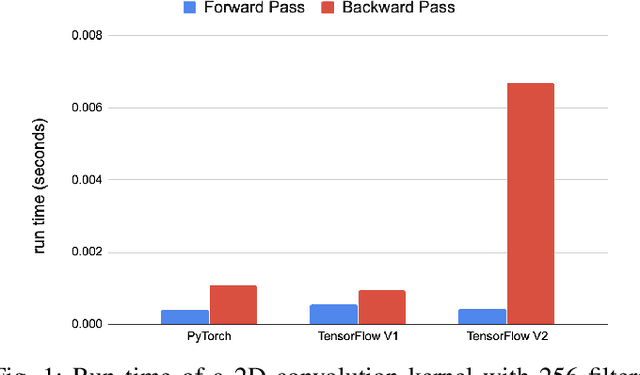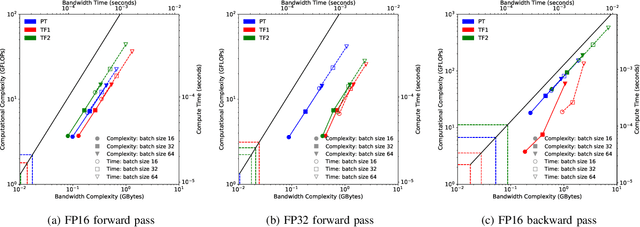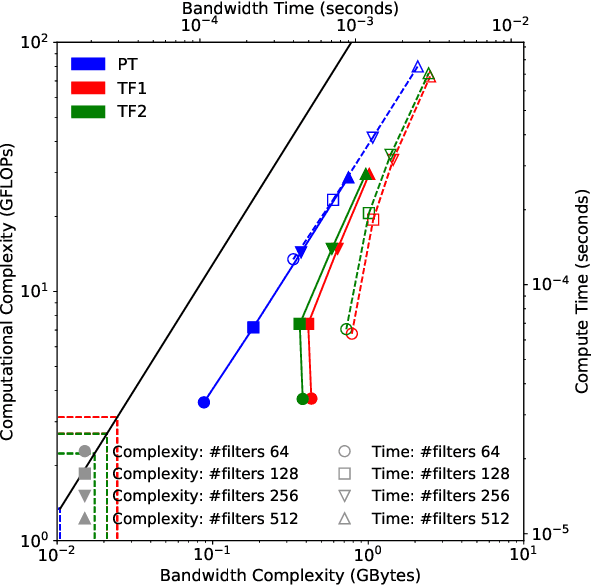Time-Based Roofline for Deep Learning Performance Analysis
Paper and Code
Sep 22, 2020



Deep learning applications are usually very compute-intensive and require a long run time for training and inference. This has been tackled by researchers from both hardware and software sides, and in this paper, we propose a Roofline-based approach to performance analysis to facilitate the optimization of these applications. This approach is an extension of the Roofline model widely used in traditional high-performance computing applications, and it incorporates both compute/bandwidth complexity and run time in its formulae to provide insights into deep learning-specific characteristics. We take two sets of representative kernels, 2D convolution and long short-term memory, to validate and demonstrate the use of this new approach, and investigate how arithmetic intensity, cache locality, auto-tuning, kernel launch overhead, and Tensor Core usage can affect performance. Compared to the common ad-hoc approach, this study helps form a more systematic way to analyze code performance and identify optimization opportunities for deep learning applications.
 Add to Chrome
Add to Chrome Add to Firefox
Add to Firefox Add to Edge
Add to Edge